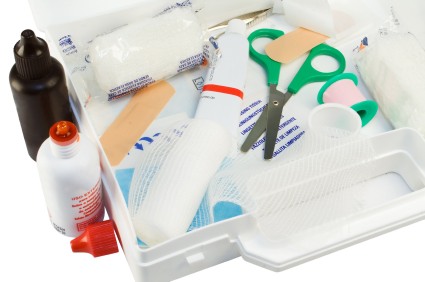Importance Of Antenatal Care

Importance Of Antenatal Care [Illustration by Shiju George]
Make your first visit to an antenatal clinic as soon as possible after a missed period. This will ensure that you have professional help whenever you need it.
Importance of early attendance
You may be carrying some diseases such as Toxoplasmosis before pregnancy without any visible symptom. In such a case, it is important to identify and treat it early to avoid complications.
- The trip to the gynaecologist has other benefits too. Your blood pressure can be checked and your weight can be monitored. Besides, any factors that could influence the baby’s development such as nutritional deficiencies (including excessive vomiting), infections and potentially hazardous drug therapy can be detected.
- Complications like intra uterine growth retardation can be screened and prevented.
- The gynaecologist will also help you plan for the delivery, advice you on the care of the newborn and your future reproductive health.
Your first visit to the gynaecologist will help you become comfortable with the doctor so that you can trust him when you go into labour. Your doctor will want to know:
- Your menstrual history (date of last menstrual period).
- Your medical history – whether you have ever suffered from any diseases, like Rubella.
- Your past and present pregnancy history.
- Surgical history (if you have gone through any operation or blood transfusion).
- Family history (if there is any history of twin pregnancy, diabetes or high blood pressure in your family).
- Your personal history like smoking and consumption of alcohol, or any other drugs.
- Drug history (if you are taking any medicine regularly or if you are allergic to any particular medicine).
- The doctor will examine you to record your condition in the initial stage of pregnancy in order to be able to compare it later as the pregnancy grows.
- After a general examination, he will check your height as this gives a rough estimate of the size of the pelvis. A woman with an average height of 5 feet and above usually has an adequate pelvis to bear a child.
- He will also check your weight and then during each visit to calculate your weight gain. The total average weight gain should be around 10 to 12 kilograms. A low calorie balanced diet is important in pregnancy to watch out excessive weight gain.
- The blood pressure recording during the first visit is used to compare it with subsequent readings. A rise in blood pressure is a bad sign in pregnancy and may indicate complications like pregnancy induced hypertension. Early detection of hypertension can prevent further complications leading to fits in pregnancy which may lead to intra uterine foetal and maternal death.
- He then checks your pulse rate and lungs, and then your abdomen to assess the growth of the baby, its position, the condition of the scar left by any previous operation, any abdominal hernia and the foetal heart rate.
- Earlier, the gynaecologist used to do a routine checkup of the vagina for the following reasons:
- To confirm the pregnancy.
- To confirm that the size of uterus corresponds to the period of pregnancy.
- To exclude the presence of any tumours or other abnormalities in the pelvis.
- To diagnose any infections in the vagina or cervix.
- To diagnose the presence of any ulcer or erosion in the cervix (mouth of the uterus).
- To take a routine cervical smear to rule out any disease.
- To assess the size of the pelvic cavity.Nowadays a vaginal checkup is considered an intrusion and an ultrasound is used instead to keep abreast of the foetal growth.However, a vaginal examination cannot be avoided at the end of the 36th week of pregnancy.
- Since it confirms the presentation of the baby.
- It helps the doctor to assess the condition of the cervix.
- It gives a fair idea of the pelvis in comparison to the presenting part of the baby.
- Few investigations are done during the first antenatal visit and then at intervals throughout pregnancy to ensure that it is proceeding normally.The following blood tests are of vital importance during pregnancy:
- Haemoglobin estimation: The normal haemoglobin level in pregnancy is 11 grams to 13 grams (lower than the non pregnant woman) and any value less than 11 grams is considered anaemic.
- Blood grouping: There are four major blood groups – A, B, AB or O. The knowledge about your blood group is important as an incompatible mother and baby could bring about complications.
- Rhesus factor and antibodies: The rhesus compatibility of the mother and child is equally important. If she is rhesus negative, the doctor will recommend several tests to check for antibodies and suggest precautions that need to be taken during labour.
- Rubella and other viral illnesses: A blood test will confirm whether you have had German measles (Rubella). Other virus tests include Toxoplasmosis, Cytomegalo virus, Herpes Simplex.
- Hepatitis: Tests for Hepatitis antigen is equally important.
- HIV (AIDS virus): Tests for the HIV virus is done with the patient’s consent.
- Other blood tests include blood sugar test and V.D.R.L. test (test for sexually transmitted disease like Syphilis).
- A routine examination of urine will provide information about any infection, presence of protein or sugar in urine.
You will be prescribed a dose of folic acid everyday for the first three months of pregnancy. This meant to aid the proper development of the baby’s nervous system and to prevent a particular type of anaemia which occurs during pregnancy.To prevent anaemia, the doctor will recommend an iron supplement from the fourth month of pregnancy and ask you to continue it even after delivery when you will be feeding the baby. Besides iron, you will have to take some calcium and multivitamin supplements too since most women do not pay much attention to their diet.
Subsequent tests
Your blood will be tested to check haemoglobin levels at regular intervals. The doctor will do a second ultrasound scan in the 16th week to exclude any congenital anomaly of the baby and to also confirm the duration of pregnancy and growth of the baby. The third ultrasound scan will be around the 38th week to see the growth of the baby, position of the baby (normally it is head down position), condition of the placenta and position of the umbilical cord.
Immunisation
You will be given two doses of tetanus toxoid during the sixth and seventh months. If you have conceived within three years of your previous delivery, a single dose is enough.
Subsequent visits to the antenatal clinic
Your subsequent visits follow a regular routine unless you need to see your doctor more frequently for any problem. Visits are usually every four weeks until the 28th week of pregnancy. Thereafter, you will be asked to come every two weeks until the 36th week. And then every week till delivery. The patient is counselled about signs of labour and breast feeding.















5 comments on “Importance Of Antenatal Care”